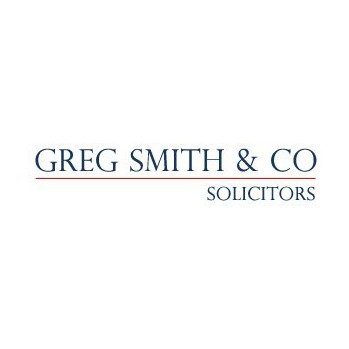Best Landlord & Tenant Lawyers in Wynyard
Share your needs with us, get contacted by law firms.
Free. Takes 2 min.
Free Guide to Hiring a Real Estate Lawyer
List of the best lawyers in Wynyard, Australia
About Landlord & Tenant Law in Wynyard, Australia
Landlord & Tenant Law in Wynyard, Australia, governs the rental of commercial and residential properties. This body of law consists of both common laws based on court rulings and statutes. Key issues covered include tenant's rights, the terms of rental agreements, discrimination, repairs, eviction process, and rent control.
Why You May Need a Lawyer
Tenant or landlords could need lawyers for varying reasons. If you're a tenant facing housing discrimination, eviction, or disputes about security deposit, you may need a lawyer. As a landlord, if you're evicting a tenant, resolving property damages caused by a tenant, or addressing other disputes that can't be resolved through negotiation, you might need legal assistance. In such scenarios, a lawyer with deep knowledge in Landlord & Tenant Law can provide required guidance and represent your interests.
Local Laws Overview
In Wynyard, Australia, specific laws regulate the rights and responsibilities of both landlords and tenants. Key provisions include that a written agreement signed by both the tenant and landlord. Duty of the landlords to ensure the premise is habitable and safe, giving proper notice before they enter the rented property. Tenants are entitled to quiet enjoyment of the property and are also responsible for any damage they cause on the property which is not ordinary wear and tear. Both parties can terminate the lease but must follow proper legal procedures to do so.
Frequently Asked Questions
What obligations does a landlord have in Wynyard, Australia?
Landlords in Wynyard are responsible for keeping the property in a habitable condition, repairing any damages in a timely manner, and providing a safe living environment.
Can a landlord make unannounced visits?
Landlords must provide reasonable notice, usually 24 hours, before entering a tenant's property unless it's an emergency.
What rights do tenants have in Wynyard, Australia?
Tenants have the right to quiet enjoyment of their rented property, a habitable and safe living environment, and they should be given proper notice of any planned property visits by the landlord.
Can a landlord increase the rent whenever they want?
No, rent increases must be included in the lease agreement and follow local and state laws. In most cases, landlords must give at least 60 days' notice of a rent increase.
What happens if a tenant breaches the lease?
If a tenant breaches their lease, the landlord may have grounds to evict them. However, the landlord must follow the proper legal procedures for eviction, which includes serving the tenant with an eviction notice.
Additional Resources
You may seek advice from organizations such as Citizen Advice Bureau and the Office of Fair Trading. Your local council might also have resources or advice for landlords and tenants. Australian Property Institute and Property Owners Association of Australia could be helpful to understand more about property laws in Australia.
Next Steps
If you need legal advice, you might want to consult with a lawyer who specializes in Landlord & Tenant Law in Wynyard, Australia. They can provide you with personalised advice tailored to your individual circumstances. During your initial consultation, ensure to provide a thorough account of your situation, carry all relevant documents, and make a list of questions to ask the lawyer.
Lawzana helps you find the best lawyers and law firms in Wynyard through a curated and pre-screened list of qualified legal professionals. Our platform offers rankings and detailed profiles of attorneys and law firms, allowing you to compare based on practice areas, including Landlord & Tenant, experience, and client feedback.
Each profile includes a description of the firm's areas of practice, client reviews, team members and partners, year of establishment, spoken languages, office locations, contact information, social media presence, and any published articles or resources. Most firms on our platform speak English and are experienced in both local and international legal matters.
Get a quote from top-rated law firms in Wynyard, Australia — quickly, securely, and without unnecessary hassle.
Disclaimer:
The information provided on this page is for general informational purposes only and does not constitute legal advice. While we strive to ensure the accuracy and relevance of the content, legal information may change over time, and interpretations of the law can vary. You should always consult with a qualified legal professional for advice specific to your situation.
We disclaim all liability for actions taken or not taken based on the content of this page. If you believe any information is incorrect or outdated, please contact us, and we will review and update it where appropriate.








